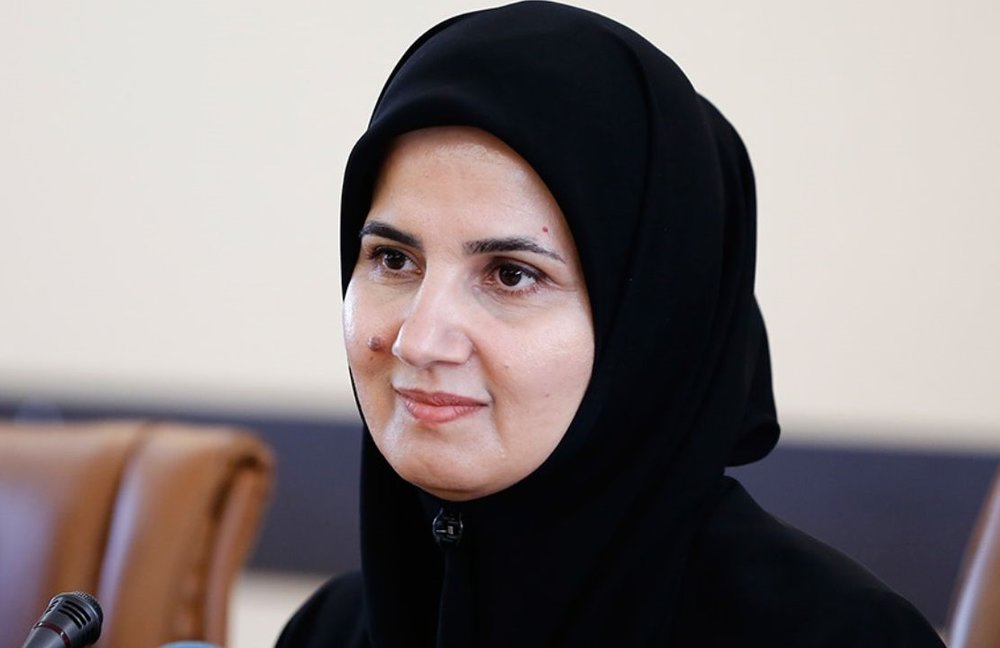The Harvard-educated woman helping lead Iran’s sanctions fight

In Iran’s hierarchical political system, it is rare to see an outsider granted a senior position. That is why the Islamic republic’s newest weapon in its battle with U.S. president Donald Trump is so unusual.
Laya Joneydi, a 50-year-old academic, is a woman with no ties to conventional politicians and no personal stories from Iran’s revolutionary years. But as Iran’s vice-president for legal affairs she has already secured a rare if symbolic victory over the U.S. on the global stage.
After the Trump administration this year withdrew from the 2015 nuclear agreement and reimposed sanctions on Iran, Ms Joneydi filed a lawsuit in co-operation with other ministries against the U.S. at the International Court of Justice (ICJ) — and Iran won.
“What the U.S. administration has done to the Iranian people is illegitimate from a legal point of view and more illegitimate from a moral point of view,” she told the Financial Times in her first interview with a foreign media group.
Ms Joneydi’s is one of Iran’s 12 vice-presidents, two of whom are women.
In the ICJ case, Joneydi helped Iran argue that the U.S. reimposition of sanctions violated a 1955 Treaty of Amity between the two countries that encouraged trade, investment and closer economic relations.
On October 3, The Hague-based ICJ handed a victory to Tehran by ordering Washington to ensure its sanctions did not hit certain forms of trade, including humanitarian aid, food and medicine.
The provisional ruling cannot be enforced and the U.S. immediately terminated the treaty, saying aid was never a target of its sanctions. But the ICJ win was nonetheless heartening for Iran, whose economy has been hit by the sanctions. The measures began to hit oil exports last month and weakened the rial by about 50 percent against the dollar this year.
“This has been an injustice to Iranian people, who see their economy and welfare weakened while even their access to basic needs is hit,” said Joneydi.
“The U.S. knows that it cannot ignore the ICJ’s rulings. It may not be the perfect option [for Iran] but… it has been useful.”
The ruling had helped in Iran’s efforts to capitalize on an EU decision to stick with the nuclear accord, she said. Without it, she suggested, European countries might not have been willing to set up a sanctions-busting payments channel for trade with Iran, due to be launched in the coming weeks.
In addition, Joneydi said, Iran was using the ICJ verdict in its negotiations with foreign companies and banks that are reviewing their ties with the country.
In a country where conservatives are vying with moderates for primacy, Joneydi is seen as a non-partisan pragmatist who is committed to defending Iran’s sovereignty.
She was born into a middle-class family in the town of Babol on the shores of the Caspian Sea and moved to Tehran as a teenager to study law at the University of Tehran, where she was the only female student among her peers at masters and PhD levels. In 2002 she received a post-doctoral research scholarship at Harvard in the U.S.
She still teaches at the University of Tehran and is proud that most of her students are women. “This means growth. It is the ultimate satisfaction for me to see today’s young and educated generation push for the country’s progress,” she said.
"I do not claim that I represent them, but I belong to this class of educated, opinionated people who believe in consistent improvements.”
After President Hassan Rouhani was re-elected in a landslide last year on a reform agenda, Joneydi received a call from his office. She imagined it was something to do with a legal case thanks to her expertise in international commercial arbitration. But instead it was a job offer.
“[I] ended up here by destiny. My life was dominated by my academic profession as well as being a legal practitioner,” she said. “I was never a politician and I am still not linked to any political group. I intentionally remain an independent person because in my position… we need to settle disputes impartially between various state organizations.”
Being a woman in a male-dominated system brings more challenges, she said. But she has been joined by others in the top ranks of the Iranian elite: the head of Iran Air is a woman, as is the managing director of the National Petrochemical Company, and a new board member of the National Iranian Oil Company.
Beyond fighting sanctions, Joneydi has reestablished the rights of religious minorities to be members of city councils and is working on a comprehensive plan to increase government transparency.
“I want to push for the rule of law at home and in international relations and help promote civil rights and individual freedoms,” she says. “Our constitution has not been properly implemented yet [and] there is a lot of room for some articles, such as those on people’s rights and freedoms, to be fulfilled.”
But like many educated, middle class Iranians, she opposes any sudden policy changes that could lead to instability and unrest. “This may be desired by those who impose sanctions, but would put Iran at the risk of turning into another Iraq, Syria or Afghanistan,” she says. “I want our 200 years of experience in struggling for the rule of law to bear desirable outcomes in a mature way, even if the process is difficult or slow.”
Leave a Comment